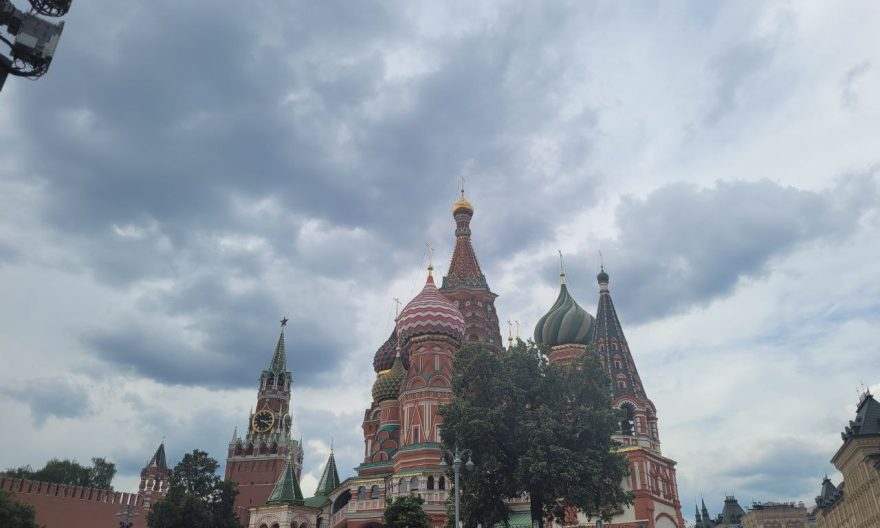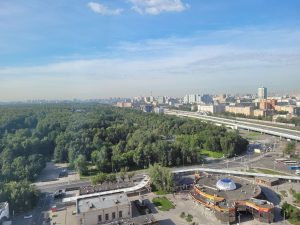
I found myself standing on my very first flight to a foreign country, thinking, ‘Hey, this is it!’
Standing outside Bole International Airport on the first day of my first-ever trip abroad; I felt a whirlwind of emotions. Nervousness, excitement, and a dash of fear mingled as I stared at the entrance. This was my chance my dream of traveling to Russia, a country I had studied passionately in history classes, was about to come true. I had read about Lenin, Yuri Gagarin, and Russia’s transformative revolutions in countless books, and now I was about to walk the same soil they once did.
Despite my excitement, I could not shake my anxiety. This was my first time navigating an international flight, and I didn’t have any experience with customs, immigration, or managing long-haul travel. But there I was, determined to make it.
The taxi I was traveling in dropped me off at Bole International Airport, and as I stepped inside, I couldn’t help but feel pride for my country’s gateway to the world. Ethiopian Airlines, Africa’s pride, always fills me with admiration despite its challenges. Ironically, my flight wasn’t with them this time but with Egypt Air. It felt strange, but I shrugged it off, focusing on the journey ahead.
After checking in my luggage and sorting out the formalities, I boarded the plane, my heart racing. The flight from Addis Ababa to Cairo lasted about four hours.
My layover in Cairo was supposed to be three hours, but delays in my first flight left me no time to even use the restroom. I hurried to my connecting flight, a five-hour journey from Cairo to Moscow. As the plane approached Moscow, I gazed out of the window, mesmerized by the dense forests that seemed to blend seamlessly into one another. It was a side of Moscow I hadn’t imagined, and the view from above gave me a sense of calm.
The captain’s voice broke through my thoughts, announcing our descent. “Please fasten your seatbelts,” he said. And just like that, I was about to set foot on Russian soil. I had arrived in the land of Lenin, the birthplace of Yuri Gagarin.
The first hurdle in Moscow was immigration. I had been warned it would take time, and it did two long hours. However, knowing what to expect kept me from feeling frustrated. Instead, I used the time to chat with fellow Ethiopian travelers, sharing stories and offering support to those who seemed just as nervous as I was.
Once through immigration, I was greeted by someone assigned to assist me to my hotel. To my surprise, they treated me like a diplomat, escorting me in a luxurious Mercedes-Benz. The ride through Moscow was nothing short of fascinating. The onion-domed churches, skyscrapers, and bustling streets made me feel like I was in a movie. Everything felt new yet oddly familiar, and the disciplined demeanor of the people added to the city’s charm.
My hotel was in Marina Roshcha, a neighborhood that quickly felt like home. I arrived thinking I would meet colleagues from other countries, but I was the first to arrive. The solitude gave me time to reflect and explore the area.
The reason for my trip was to attend a fellowship program focusing on Russia’s media landscape. While waiting for the program to begin, I ventured into Moscow’s streets. One thing I quickly noticed was how the city blends history with modernity. Old buildings are preserved and repurposed, keeping the past alive while embracing the future.
Moscow’s public transport amazed me. The metro system, with its underground stations and intricate network of radial lines, is a marvel. Trains arrive every two minutes, and with a metro card, you can switch between buses and trains seamlessly. Even the streets are well-organized.

Despite spending over 30 days in Moscow, I never saw a traffic police officer yet everyone followed the rules, pedestrians and drivers alike.
One day, while exploring Red Square, I visited a food court. It wasn’t until I tried to leave that I realized the entire complex was underground. This level of smart city planning is something I hadn’t seen before.
Another highlight was Moscow’s dedication to modern conveniences. The city’s payment systems are efficient, with cashless transactions being the norm. Banks even offer incentives like partial refunds for using their cards. However, withdrawing cash from ATMs comes with hefty fees, so I learned to rely on my card for most purchases.
The people I met during my stay were incredibly welcoming. Despite the language barrier I had only rehearsed six Russian words locals were eager to help. If someone spoke even a little English, they went out of their way to assist me.
One aspect of Moscow that stood out was its focus on sustainability. From green initiatives to improving transportation, the city is evolving rapidly. The blend of historical preservation and modern innovation is what makes Moscow truly unique.
As I reflect on my first trip abroad, I realize how much I learned not just about Moscow, but about myself. I navigated challenges, embraced new experiences, and fulfilled my dream of visiting a country I had long admired. Standing on Russian soil, I felt a profound connection to its history and people, and I returned home with memories that will last a lifetime.
BY KALEAB GIRMA
THE ETHIOPIAN HERALD SATURDAY 25 JANUARY 2025




